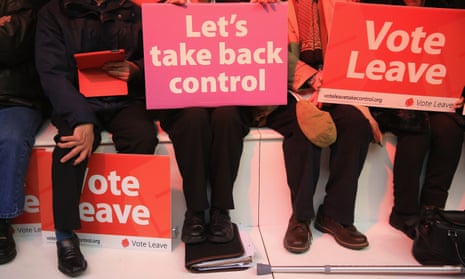In 2015, a strident editorial appeared in Global Water Intelligence, a trade magazine for the water industry, under the title: Exorcising the “R” word. “It would be a travesty,” the writer declared, to let “the ill-informed propaganda of a few NGOs” interfere with private sector involvement in the water business.
The unspeakable “R” word that had provoked such a defensive stance? Remunicipalisation: the taking back of privatised assets and services into public ownership at a local level.
This dangerous idea, the Global Water Intelligence piece said, would be “unlikely to be taken seriously by intelligent decision-makers in the industry”, because of all the “valid and rational arguments behind private sector participation” in providing water.
What the article did not say, but was implicit in its attack, was that water ownership is a battle the private sector seems to have been losing. Since 2000 there have been at least 110 cases of remunicipalisation in the water and sanitation sector in France alone. In 2008, the capital reclaimed its water from the private sector – saving €35m in its first year, reducing tariffs by 8%, reinvesting profits into maintenance rather than paying them out to shareholders, and increasing free access to water and sanitation for the residents of Paris.
The agency, Eau de Paris, even installed free fountains providing sparkling water – a comically French idea, perhaps, but cheap, and good for the environment, preventing thousands of plastic bottles from heading to landfill sites. It also illustrated an important point: when our urban infrastructure is owned by the public rather than profit-making corporations, everyone – not just shareholders – can have nice things.
The word remunicipalisation does not lend itself to catchy slogans. It is, perhaps, somewhat alienatingly wonkish: in-sourcing civic infrastructure is not generally thought of as sexy politics. But its popularity is on the rise worldwide. The Transnational Institute (TNI), a thinktank in Amsterdam, has been banging the drum for years. Its latest report, The Future Is Public, identifies more than 1,400 cases of remunicipalisation since the turn of the millennium, in more than 2,400 cities across 58 countries.
The local services brought back into public ownership range from social care programmes in Selangor, Malaysia to privatised housing in Berlin, Germany; from waste services in Winnipeg, Canada to public transport cleaning in Seoul, South Korea. The report brims with success stories: the Chileans benefiting from dramatically lower drug prices since 40 new public pharmacies were created; the 141 new publicly-owned telecommunication providers in Chattanooga, Tennessee providing internet service to locations where private companies had decided it wasn’t worth the trouble. There has been a 47% cut to electricity use in street lighting in the Bulgarian city of Dobrich since it was remunicipalised in 2018, when the local government installed energy-efficient LED bulbs.

The benefits of remunicipalisation fall into two broad categories: first, correcting what has gone wrong in our cities after decades of privatisation, profit-extraction and waste; and second, forging a new sense of the public good.
“The privatisation and outsourcing of the last 30-40 years has failed,” says Cat Hobbs of the Oxford-based campaigning organisation We Own It. . “It tends to cost us more, it means that we get worse services, we have less control over them, and there is less democratic accountability to us, the public.
“But it’s also a moral question. We’re often talking about natural monopolies like water, where competition doesn’t make sense, and the market doesn’t really belong. When we talk about ‘people not profit’, everyone understands that.”
The alternative, she argues, is one in which public ownership at the local level can ensure there are better, more stable jobs for communities, prioritising sustainability rather than dividends for shareholders. From social care to libraries to refuse collection, privatisation has cut these services to the bone.
Remunicipalisation could resonate particularly well in the UK, because it speaks to some of the same political shifts that led to Brexit.

“We know that part of Brexit is about people wanting decisions to be taken near to where they live,” Hobbs says. “It’s about a sense of accountability and economic sovereignty, and taking back control.”
Why not help people actually take back control, in a way that transcends not just the 2016 referendum vote, but also how people voted in the recent UK election? Perhaps some of the questions being asked about Labour’s “lost heartlands” – about how you rebuild a civic sphere, and a sense of local community and participation in post-industrial cities – could be answered through remunicipalisation.
“Simply parcelling off public services to whichever multinational company can do it the cheapest is not a way of showing we value our communities,” says Hobbs. “This is core to a decent society.”
But if remunicipalisation is a local movement, it is a global phenomenon, with the sharing of radical ideas and best practice among progressive city halls across the world. This sharing is the policy arm of the Fearless Cities organisation, and the book of the same name, which unites the growing municipalist movement.
Fearless Cities is best seen as a revanchist programme, trying to claw back some of the territory taken over the by the privatisation orthodoxy that began spreading globally during the Reagan and Thatcher era. Institutions such as the IMF, WTO and the World Bank pushed outsourcing of government services, and tough conditions on loans that had the effect of encouraging privatisation and fire-sales of public assets.
The 2008 global financial crisis, however, shook the assumption that the private sector would produce the best results in cities. It is telling that the first political response to the crash began in 2011 with the Occupy movement – in the public spaces of world cities such as Athens, Madrid, London and New York. These “movements of the squares” soon found political expression at a national level, via new parties like Podemos and Syriza, and in Bernie Sanders’ and Jeremy Corbyn’s political successes.
But it is no coincidence that the greatest successes of these movements have occurred in the same cities where they began: the reclaiming of public assets by new city governments drawn from those street movements. In Spain, where new “municipal platforms” swept to power in 2015 in Barcelona, Madrid, Cadiz, Valencia and several other cities, the Future Is Public report found 119 examples of remunicipalisation – behind only the US and France in number – ranging from energy and waste to funeral services and school canteens. As in France, water has been a particular triumph: there have been 27 remunicipalisations in Catalonia alone since 2010, under the banner Agua és Vida (“water is life”).

Sometimes, the best way to challenge privatisation is just by “municipalisation”, without the “re” – creating a new publicly owned organisation to challenge an existing cartel. The mayor of Barcelona, Ada Colau, and her grassroots platform Barcelona en Comú have been battling corporate energy companies since her election in 2015, determined to improve self-sufficiency and environmental sustainability. In June of 2019, a publicly owned, 100% renewable energy company they established called Barcelona Energía (BE) began supplying electricity to Barcelona City Council buildings and facilities, as well as 20,000 homes, making it the largest of its kind in Spain. They are now installing solar panels on the roofs of public buildings, and hoping to continue to grow.
“It is the best way to concretise demands to defend public services,” says TNI’s remunicipalisation guru Sol Trumbo, reflecting on the power of this kind of local action. There are a number of strategic advantages to focusing on city-level change, he says, especially for the left.
“If you are confronting neoliberal thinking and dogmas, it’s much harder to find a clear position on something as complex as, say the EU, or Nato membership. But if your political debate is around questions like: ‘Are there enough parks? Is public transport working or not? Are there too many cars on the streets?’ The questions are really tangible, and close to people’s lives, and it’s easier for progressive politics to provide an answer.”
They ought to become still closer. Part of the remunicipalisation ideal is that it is not simply an obscure asset transfer from private to public ownership – a change in the paperwork that will pass ordinary citizens by. Rather, it aims to increase participation in decision-making, boost local democracy and civic energy, and make services fairer and more accessible.
“In these moments of political uncertainty and distrust, locality and proximity is really useful,” Trumbo says. What better way to rebuild local community, local connections, local pride? I’ll raise my free sparkling water to that.

Comments (…)
Sign in or create your Guardian account to join the discussion